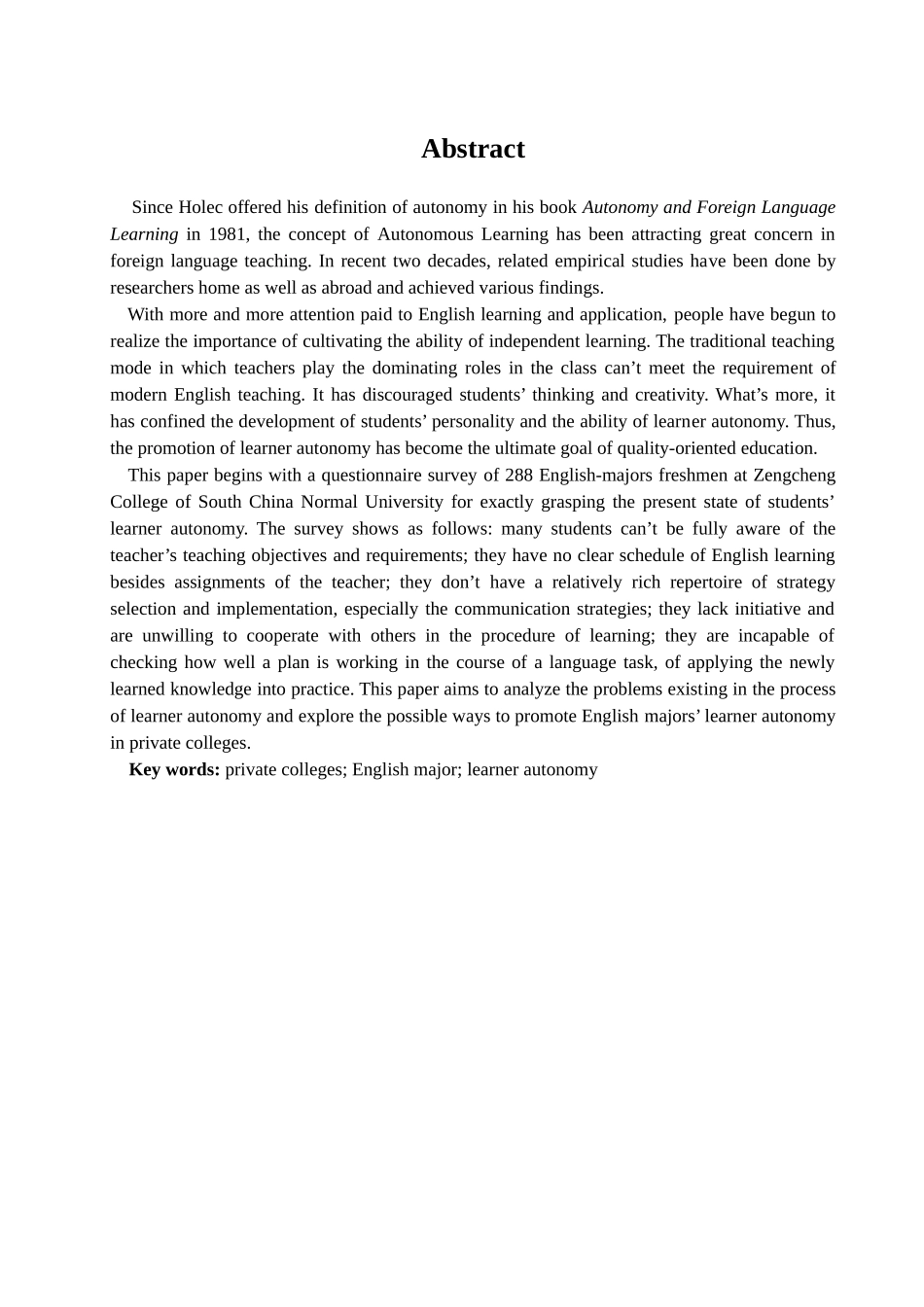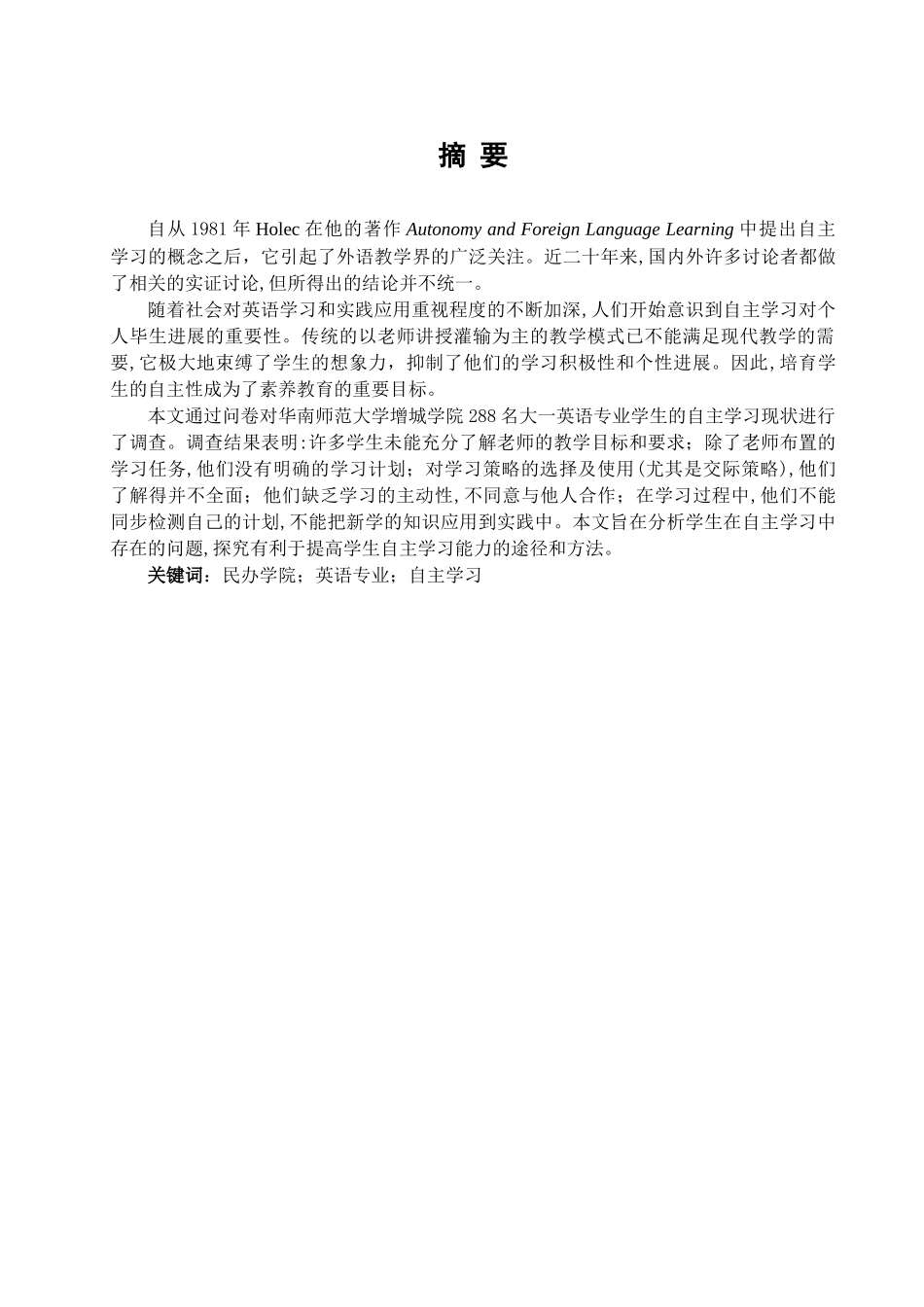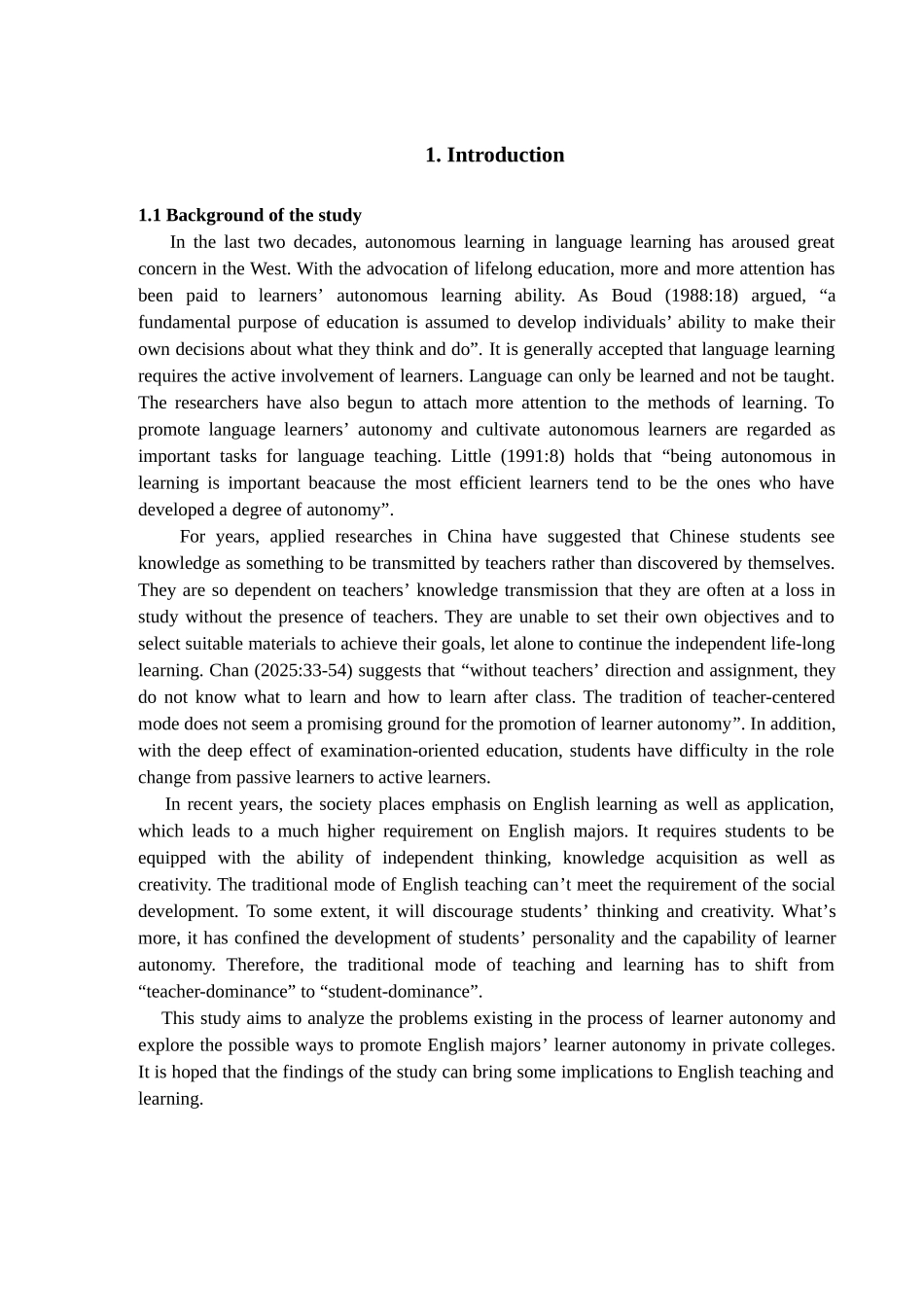Abstract Since Holec offered his definition of autonomy in his book Autonomy and Foreign Language Learning in 1981, the concept of Autonomous Learning has been attracting great concern in foreign language teaching. In recent two decades, related empirical studies have been done by researchers home as well as abroad and achieved various findings. With more and more attention paid to English learning and application, people have begun to realize the importance of cultivating the ability of independent learning. The traditional teaching mode in which teachers play the dominating roles in the class can’t meet the requirement of modern English teaching. It has discouraged students’ thinking and creativity. What’s more, it has confined the development of students’ personality and the ability of learner autonomy. Thus, the promotion of learner autonomy has become the ultimate goal of quality-oriented education. This paper begins with a questionnaire survey of 288 English-majors freshmen at Zengcheng College of South China Normal University for exactly grasping the present state of students’ learner autonomy. The survey shows as follows: many students can’t be fully aware of the teacher’s teaching objectives and requirements; they have no clear schedule of English learning besides assignments of the teacher; they don’t have a relatively rich repertoire of strategy selection and implementation, especially the communication strategies; they lack initiative and are unwilling to cooperate with others in the procedure of learning; they are incapable of checking how well a plan is working in the course of a language task, of applying the newly learned knowledge into practice. This paper aims to analyze the problem...


